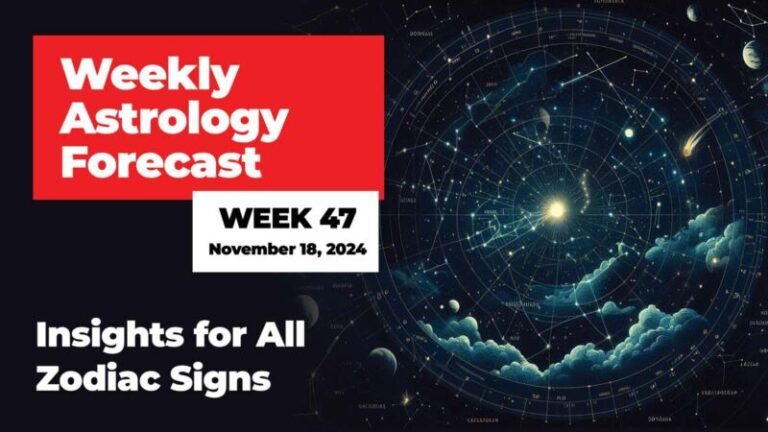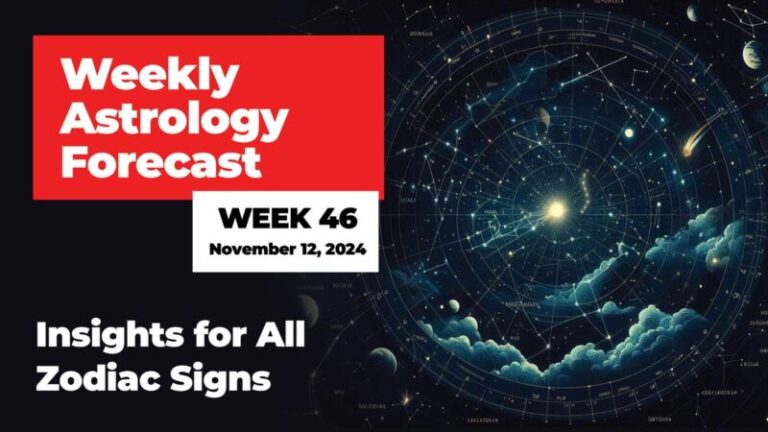- Aries zodiac signAries zodiac sign Aries, the first sign of the zodiac, is known for its passionate and bold nature.
- Taurus zodiac signTaurus zodiac sign Taurus, ruled by Venus, is the second sign of the zodiac and symbolizes stability and reliability.
- Gemini zodiac signGemini zodiac sign Gemini, the third sign of the zodiac, is ruled by Mercury and represents adaptability and communication.
- Cancer zodiac signCancer zodiac sign Cancer, the fourth zodiac sign, is ruled by the Moon and known for its nurturing and emotional nature. Compassionate, intuitive, and deeply connected to family, Cancers are sensitive yet strong. Uncover Cancer’s personality, love compatibility, and career path. Born between June 21 and July 22. The Emotional Caregiver of the Zodiac! Compassionate, protective, and deeply intuitive, Cancers are dedicated to nurturing their loved ones. Family and home are their sanctuary, and they excel at offering emotional support to those they cherish. Fun Facts About the Cancer Zodiac Sign Dates: Cancer is the fourth sign of the zodiac, representing those born between June 21 and July 22. Element: Cancer is a water sign, symbolizing emotions, intuition, and nurturing. This connection to water makes Cancers sensitive and deeply connected to their feelings and the feelings of others. Symbol: The symbol of Cancer is the Crab, representing resilience and protection. Just like a crab, Cancer individuals often have a hard exterior but a soft, vulnerable heart within. Ruling Planet: Cancer is ruled by the Moon, the celestial body associated with emotions and intuition. This influence gives Cancer individuals their strong emotional depth and empathy, making them incredibly intuitive and caring.…
Astrology Stars and Planets, Illuminating Pathways
Chapters
Astrology Stars and Planets – Unveiling the Celestial Connection
Astrology has fascinated humans for millennia, providing a framework for understanding how the positions of stars, planets, and other celestial bodies may influence our lives. At its core, astrology is the study of cosmic forces and their impact on human behavior, personality, and world events.
It is based on the idea that celestial phenomena, especially the movements of planets and stars, correspond to events in the human world. Though astrology has roots in ancient cultures and has evolved over time, it remains a significant part of modern spirituality and self-reflection.
In this post, we will explore how astrology connects with stars and planets, delving into their roles, their symbolic meanings, and how they shape astrological readings.
The Role of Stars in Astrology
The stars have always been central to astrology. Early astrologers mapped the sky and identified key star groupings, or constellations, which formed the zodiac. These twelve zodiac constellations, such as Aries, Taurus, and Gemini, serve as the backdrop against which planetary movements are observed.
While the stars themselves do not play an active role in modern astrological readings (which are primarily planet-based), the constellations and fixed stars still hold symbolic significance. In ancient times, astrologers would often look at “fixed stars” — stars that appeared not to move in relation to others — as markers of specific cosmic influences. Today, astrologers primarily use the constellations to divide the sky into twelve equal sections, called houses, which help determine a person’s birth chart.

Each zodiac sign is associated with one of the four elements (fire, earth, air, and water), and represents specific personality traits or life themes. For instance, Leo, a fire sign, is often associated with leadership, confidence, and creativity, while Virgo, an earth sign, is linked to practicality, organization, and attention to detail.
-


Rubber Case for AirPods® for zodiac sign Aries
$19.99Select options This product has multiple variants. The options may be chosen on the product page -


Laptop bag AQUARIUS zodiac sign (Sleeve)
$23.99Select options This product has multiple variants. The options may be chosen on the product page -


Backpack LEO Zodiac Sign
$42.99 -


Rubber Case for AirPods® for zodiac sign Scorpio
$19.99Select options This product has multiple variants. The options may be chosen on the product page
The constellations, although seemingly static, provide a framework through which planetary influences are interpreted.
The Planets and Their Significance
Planets in astrology, unlike stars, are dynamic and constantly moving through the zodiac. These celestial bodies have a much more direct influence on astrological interpretations. Each planet represents different energies and aspects of life, influencing how individuals interact with the world, how they experience relationships, and even how they pursue personal growth. Here’s an overview of the main planets and their astrological meanings:
The Sun
- Role: The Sun represents the core essence of an individual, their ego, and identity. It is linked to one’s purpose and vitality.
- Zodiac Association: Leo.
- Astrological Influence: In a birth chart, the position of the Sun signifies a person’s core traits and major life themes. It’s often the most recognizable feature of an individual’s personality.
The Moon
- Role: The Moon governs emotions, intuition, and inner life. It represents the unconscious mind and one’s emotional responses.
- Zodiac Association: Cancer.
- Astrological Influence: The Moon’s position in a birth chart highlights how a person deals with feelings, what they need for emotional security, and their nurturing instincts.
Mercury
- Role: Mercury is the planet of communication, intellect, and reasoning. It influences how individuals express themselves and process information.
- Zodiac Association: Gemini and Virgo.
- Astrological Influence: Mercury’s placement affects communication styles, learning habits, and decision-making processes.
Venus
- Role: Venus is the planet of love, beauty, and harmony. It governs relationships, attraction, and personal values related to pleasure.
- Zodiac Association: Taurus and Libra.
- Astrological Influence: Venus dictates romantic tendencies, social interactions, and what an individual finds aesthetically pleasing or valuable.
Mars
- Role: Mars is the planet of action, energy, and desire. It governs how individuals assert themselves and pursue goals.
- Zodiac Association: Aries and, traditionally, Scorpio.
- Astrological Influence: Mars’ influence in a birth chart relates to ambition, sexual drive, and how one confronts challenges.
Jupiter
- Role: Jupiter represents expansion, growth, and abundance. It is associated with wisdom, spirituality, and higher learning.
- Zodiac Association: Sagittarius.
- Astrological Influence: Jupiter’s position in a chart reveals opportunities for personal growth, areas of optimism, and how one seeks meaning in life.
Saturn
- Role: Saturn is the planet of structure, discipline, and responsibility. It governs lessons learned through challenges and time.
- Zodiac Association: Capricorn and, traditionally, Aquarius.
- Astrological Influence: Saturn’s placement points to areas of life that require discipline, hard work, and where individuals face limitations or challenges.
Uranus
- Role: Uranus is linked to innovation, rebellion, and sudden change. It governs originality and non-conformity.
- Zodiac Association: Aquarius.
- Astrological Influence: Uranus reflects how individuals embrace change, their need for freedom, and where they seek to break with tradition.
Neptune
- Role: Neptune is associated with dreams, spirituality, and the subconscious. It governs illusions, creativity, and compassion.
- Zodiac Association: Pisces.
- Astrological Influence: Neptune’s position affects intuition, artistic expression, and how one deals with idealism and escapism.
Pluto
- Role: Pluto is a dwarf planet. Transformation, power, and rebirth. It is linked to deep, often hidden forces of change.
- Zodiac Association: Scorpio.
- Astrological Influence: Pluto’s placement reveals areas of life where individuals undergo profound changes, often relating to power dynamics, control, and personal evolution.
Astrology and the Dynamic Sky
Astrologers analyze how the planets move through the zodiac constellations to make predictions or to understand certain characteristics of an individual’s life.
For example, each planet moves at different speeds through the zodiac signs, creating shifting dynamics between planetary energies. Some of these movements are significant, like a planet’s “retrograde” motion, where it appears to move backward in the sky from Earth’s perspective.
Retrogrades, particularly Mercury retrograde, are often seen as periods of reflection, challenges, or delays in the areas governed by that planet.
Moreover, astrological aspects — the angles formed between planets in the sky — are key to understanding how these celestial bodies interact with one another. For instance, a harmonious aspect between Venus and Jupiter might suggest a period of ease in relationships or financial matters, while a challenging aspect between Mars and Saturn could indicate obstacles in pursuing goals or dealing with authority.
Modern Astrology and Personal Insight
Today, astrology is more personalized than ever. A person’s birth chart is a detailed map of where all the planets were positioned at the exact moment of their birth. This chart provides deep insight into an individual’s personality, preferences, and potential life path. Modern astrology often emphasizes self-awareness and personal growth, helping individuals understand their strengths, weaknesses, and life cycles.
Astrology may not be a precise science, but its symbolism and teachings continue to resonate with many people. It serves as a reflective tool, helping individuals navigate the complexities of human existence by linking them to the greater cosmic order. Through the intricate dance of stars and planets, astrology offers a lens through which we can better understand ourselves and the world around us.
Astrology remains a vast and intricate system of thought. The alignment of stars and planets can serve as a guide for introspection, offering profound insight into human nature and the universe’s mysteries. Whether used for personal reflection or broader predictions, the celestial world has a timeless connection with the human experience.
-


ARIES iPhone Case – Bold Protection for the Brave
$13.99Select options This product has multiple variants. The options may be chosen on the product page -


GEMINI iPhone Case – Trendy for the Dynamic
$13.99Select options This product has multiple variants. The options may be chosen on the product page -


Leo T-shirt Hear Me Roar
$14.50 – $19.50Select options This product has multiple variants. The options may be chosen on the product page -


Pisces T-shirt Dreamer of the Deep B
$14.50 – $19.50Select options This product has multiple variants. The options may be chosen on the product page

Previous Post
Unlocking Perfect Zodiac Sign Compatibility - All 13
Next Post
Zodiac Constellations - A Guide to the Stars



